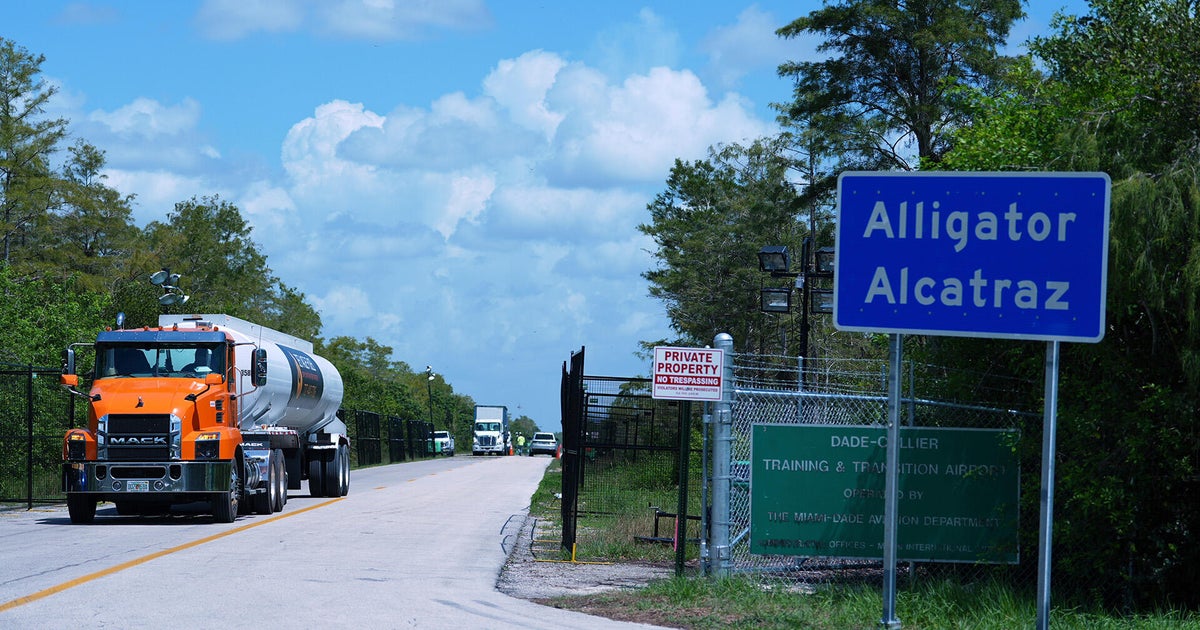An appeals-court panel on Thursday grilled attorneys about a new state law making it a crime for undocumented immigrants to enter Florida, questioning whether enforcement and oversight of such issues should be left to the federal government.
The Republican-controlled Legislature passed the law during a February special session aimed at helping President Donald Trump’s efforts to crack down on illegal immigration.
The law (SB 4-C) makes it a crime for undocumented immigrants over age 18 to “knowingly” enter or re-enter Florida “after entering the United States by eluding or avoiding examination or inspection by immigration officers.”
Attorneys for the Florida Immigrant Coalition, the Farmworker Association of Florida and two individual plaintiffs filed a challenge in federal court in South Florida, alleging the law is unconstitutional.
U.S. District Judge Kathleen Williams in April issued a preliminary injunction blocking the law, saying it was likely preempted by federal immigration-enforcement authority. In part, she pointed to part of the law requiring that violators go to jail and indicated that could conflict with federal authority.
A three-judge panel of the Atlanta-based 11th U.S. Circuit Court of Appeals on Thursday heard arguments in the state’s appeal of Williams’ order. The legal battle over the law has been highly contentious, with Williams taking the unusual step of finding Florida Attorney General James Uthmeier in civil contempt because of a letter he sent to law-enforcement agencies indicating he could not prevent police from enforcing the law after Williams ordered a halt.
Thursday’s arguments touched on the contempt order but focused on the underlying dispute about Florida’s authority to make it a crime for people who are in the country without authorization to enter the state.
Judge Adalberto Jordan, who was joined on the panel by judges Charles Wilson and Barbara Lagoa, pressed Jeffrey DeSousa, the state’s acting solicitor general, about the preemption issue.
“The federal government has created a scheme where only certain illegal entry or re-entry offenses are prosecuted, others are taken care of civilly through the removal process, but you think that’s not field preempted?” Jordan asked.
DeSousa pointed to previous court rulings establishing that “states could have precisely the kinds of regulations that Florida has adopted” and saying that “states aren’t powerless to deter the influx of immigrants into the United States illegally, and that’s all that Florida has done here.”
DeSousa also argued that federal immigration law “is primarily concerned with admissibility regulations” about who can enter the country.
Lagoa, a former Florida Supreme Court justice, asked DeSousa about part of the law that says people who are arrested pose a flight risk and must be held without bond.
“It seems like a strange way to handle it. It causes me some concern,” she said.
The panel’s review of Williams’ preliminary injunction “is governed by the abuse of discretion standards,” Jordan told DeSousa, noting that other courts that have considered similar state laws have found that they were preempted by federal authority.
“The general default principle is you don’t do merits review in a preliminary injunction appeal because the judge is weighing probabilities, and that’s a quintessential discretionary call unless there’s a clear error of judgment,” Jordan said.
But DeSousa argued that preliminary injunctions “have proliferated over the last decade.”
“This is a huge rule-of-law problem for states because a district court that wrongfully imposes a PI (preliminary injunction), as we think happened here, can effectively pause a state’s law for potentially years through the pendency of the litigation. It can take years and the state is irreparably harmed by that,” DeSousa said.
Cody Wofsy, an attorney for the American Civil Liberties Union who represents the plaintiffs, argued that the U.S. Supreme Court for over 150 years has said that immigration law should be regulated by the federal government.
“The interest here is an … inherent, central area of federal control and interest,” Wofsy, who is deputy director of the ACLU’s Immigrants’ Rights Project, told the panel.
Florida’s law is “even more punitive” than federal immigration law, requiring mandatory pretrial detention and longer mandatory sentences, according to Wofsy.
Lagoa noted that states can impose tougher penalties for drug crimes. But Wofsy said that immigration is different.
“Here, we’re saying there is a complex problem at the border that we’re dealing with, which is that there are people who are coming in between ports. We both want to deter that, but we also want to acknowledge foreign policy considerations, humanitarian considerations, and connections with US citizens. …. How do we figure that out? We have one sovereign make the decision about which tools are going to be deployed, and that’s the federal government,” Wofsy said.
The judges also wrangled over Williams’ contempt order.
Uthmeier has argued that a temporary restraining order — and a longer-lasting preliminary injunction issued later — should only apply to him and local state attorneys because they were the named defendants in the underlying lawsuit.
In an April 23 letter to police agencies, Uthmeier reiterated that position and said he could not prevent police from enforcing the law “where there remains no judicial order that properly restrains you from doing so,” according to Williams’ June 17 contempt ruling.
Lagoa said she thought Williams “erred” when issuing the contempt ruling because Uthmeier’s office doesn’t have direct oversight of sheriffs.
“So how is it appropriate for the district court judge to order the attorney general of Florida to, in essence, supervise these law-enforcement officers?” she asked Wofsy.
But Wofsy said he disagreed with Lagoa’s representation of Williams’ order.
“What the attorney general and every defendant was ordered to do was to give notice of the court’s order. He didn’t have to agree with it. He didn’t have to command them to do anything,” Wofsy said, adding that the contempt issue is the subject of a separate appeal. “The problem with what the attorney general did here is not that he refused to command law enforcement officers, it’s that he told them that there was no lawful legitimate order binding them.”



